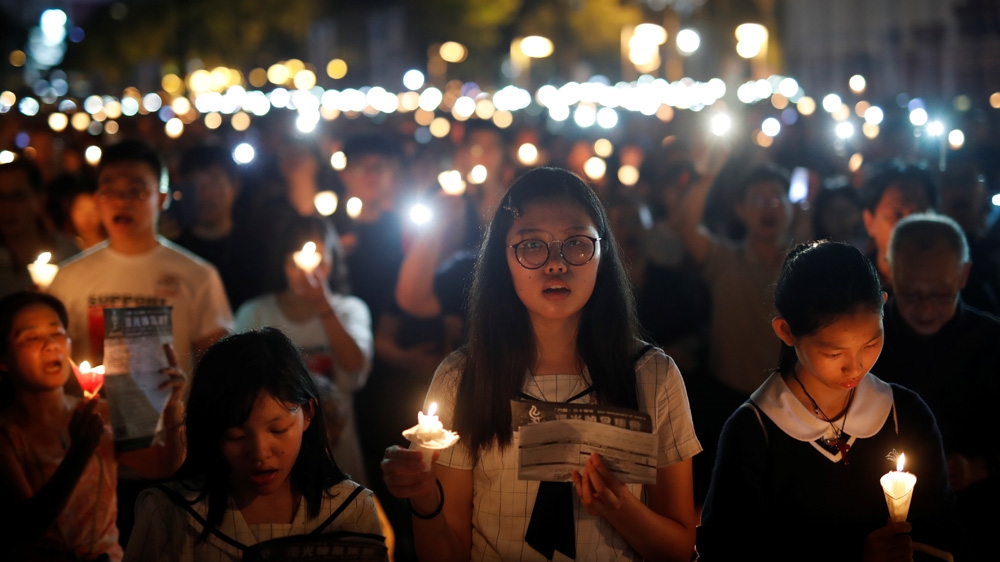
Hong Kong must not “recommend books with unhealthy ideas”, the territory’s leader John Lee has said, after it emerged books related to the 1989 Tiananmen Square crackdown had been removed from public libraries.
The discovery was made after a prominent political cartoonist – whose work often satirised Hong Kong’s relationship with mainland China – was suspended indefinitely from publishing in a mainstream newspaper, and had his books removed from the city’s libraries.
That prompted Hong Kong journalists to check the public library department’s database for books on other politically sensitive issues, including the June 4 Tiananmen crackdown, to discover dozens of titles and documentaries were missing.
Lee defended the move, saying the books found in Hong Kong’s public libraries were “those we recommend for the residents”.
“We must not recommend any books that are unlawful, that violate copyrights, that contain unhealthy ideas,” he said.
“The government is obliged not to recommend books with unhealthy ideas.”
Hong Kong’s Ming Pao newspaper reported that more than 40 percent of video materials and books involving “political themes” had been removed from public libraries since 2020.
That was the year that Beijing imposed a sweeping national security law on the territory, despite promising to respect Hong Kong’s wide-ranging freedoms for at least 50 years when the British colony reverted to Chinese rule in 1997.
There’s been a purge on HK’s libraries with up to 40% of political books disappearing according to one report. Among the disappeared is my People’s Republic of Amnesia. I wrote a few weeks ago about how HK’s memory is being erased, and hey presto, I to… https://t.co/l922lc1qcG pic.twitter.com/g3p9f19dXE
— Louisa Lim (@limlouisa) May 16, 2023
Public memorials and commemorations of Tiananmen, which is a censored topic on the mainland, were once allowed in Hong Kong.
But in the past three years, Hong Kong authorities have banned its annual June 4 candlelight vigil on COVID-19 social distancing grounds, and charged its organisers with “incitement to subversion” under the security law.
Public monuments to Tiananmen, when the Chinese military opened fire on peaceful protesters who had occupied the square in Beijing for weeks, have also been removed from the grounds of three universities.
A government-backed audit commission said in an April report that a two-year government review of library materials had almost been completed of “library books which are manifestly contrary to the interests of national security and removed them from the library collections”.
The national security law, which punishes acts including subversion and collusion with foreign forces with possible life imprisonment, has been criticised as a tool of repression by some countries, including the United States. A year after the law was imposed, Amnesty said it had “decimated” the territory’s freedoms.







